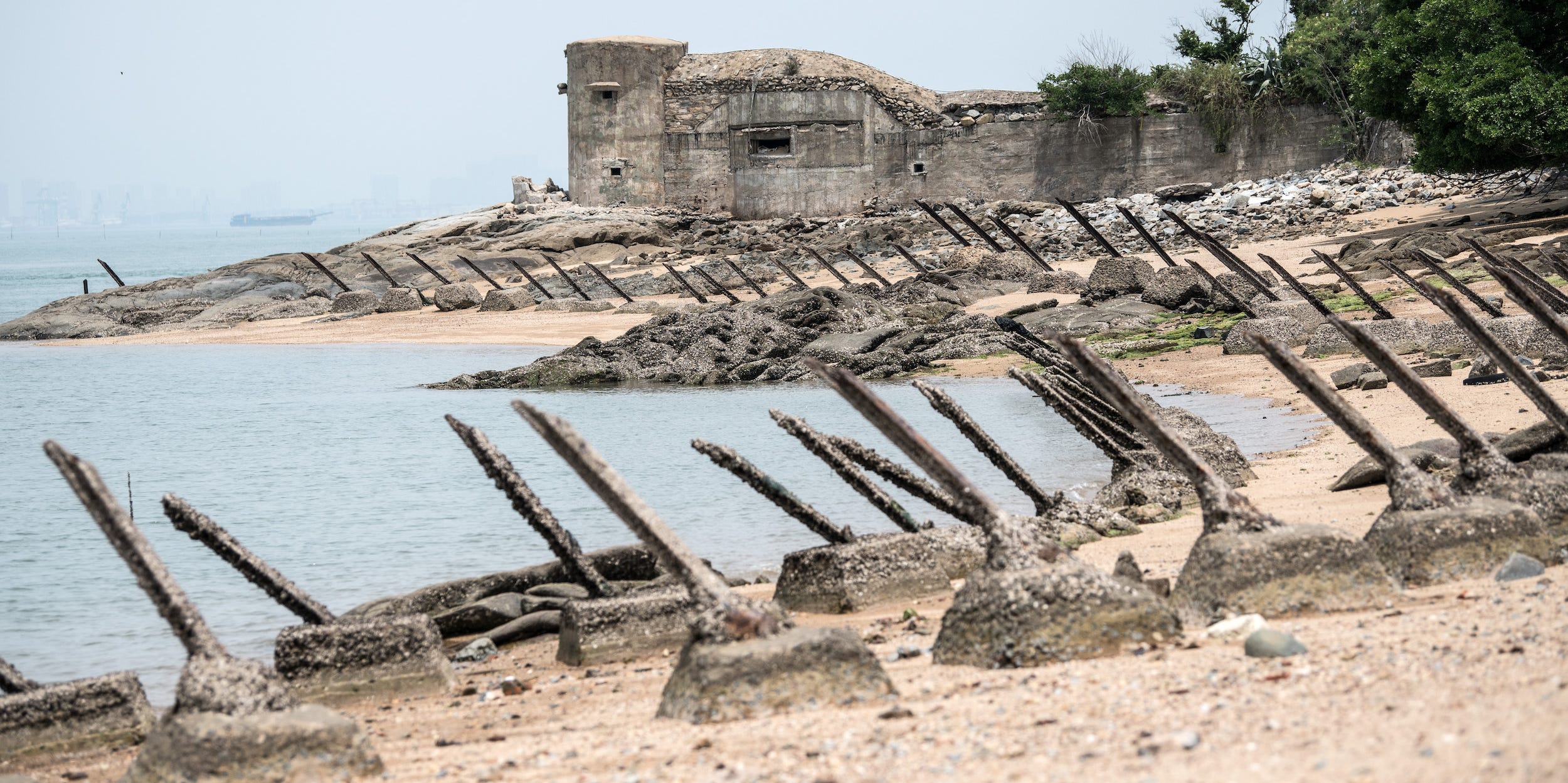
Carl Court/Getty Images
- China has been expanding its influence and taking a more aggressive posture toward Taiwan.
- That has raised concerns that Beijing will attempt to retake the island by force.
- Whether the US and other countries would help, and what help they would offer, remains in doubt.
- See more stories on Insider's business page.
Twenty-five years ago, two US Navy carrier strike groups were enough to deter possible Chinese military action against Taiwan after China launched missiles that landed a few dozen miles off its coast.
Now, after a massive modernization effort by China's military, known as the People's Liberation Army, or PLA, two carrier strike groups, and possibly US forces alone, may not be enough.
This is especially daunting for Taiwan, as it is unclear if it can get help from anyone else if, or when, the time comes.
In March, Adm. Philip Davidson, then head of US Indo-Pacific Command, told the Senate Armed Services Committee that China could invade Taiwan in the next six years.
A few days later, Adm. John Aquilino, Davidson's successor, declined to comment on that assessment but said that China views Taiwan "as their No. 1 priority" and that, in his opinion, "this problem is much closer to us than most think."
Who could help?
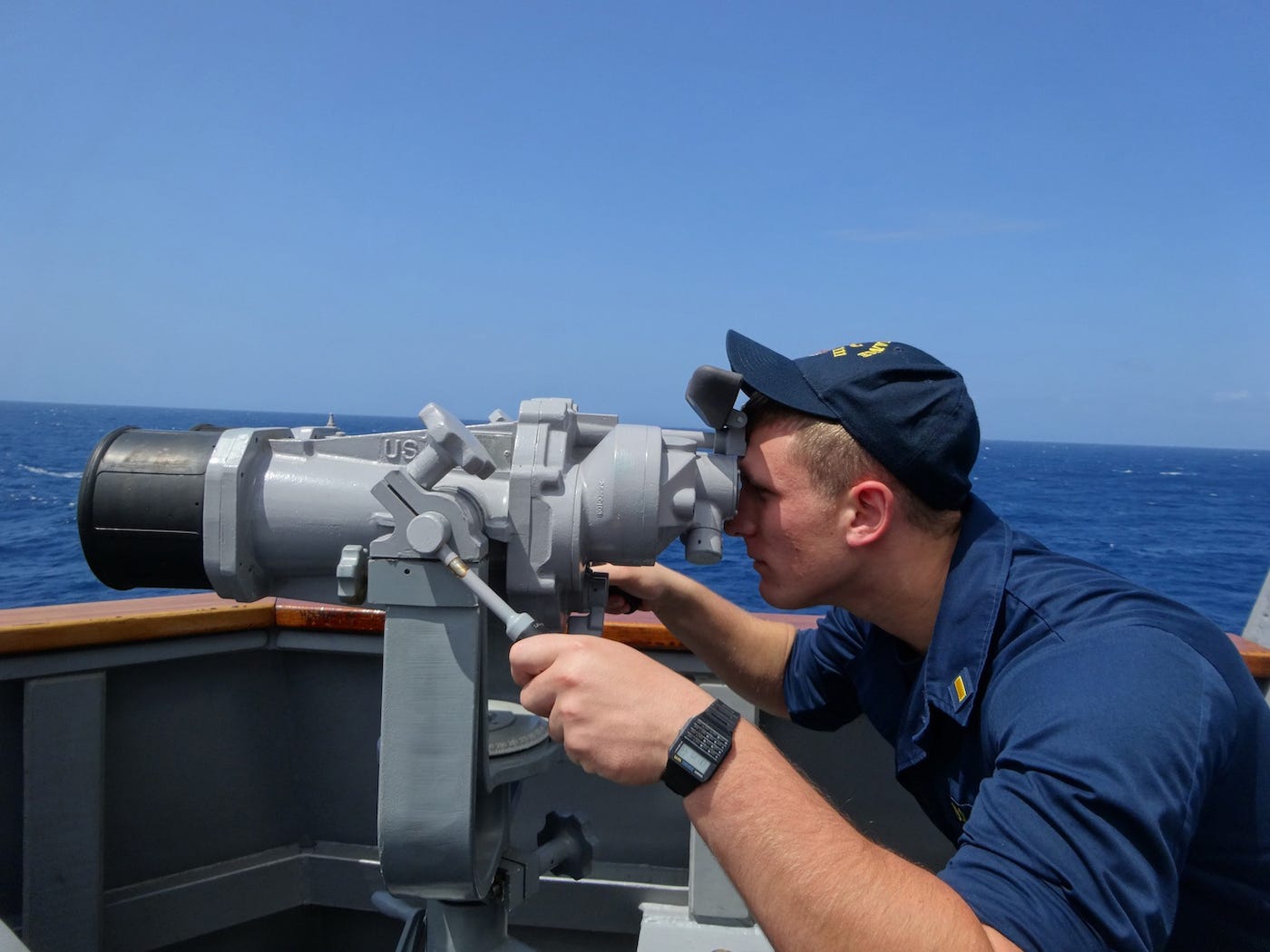
US Navy/Lt. j.g. John Horne
Taiwan's problem with finding friends isn't new. Since the 1970s, most countries have severed official ties with Taipei and instead recognized Beijing, which regards Taiwan as a breakaway province.
Today only 15 countries - none in Asia - recognize Taiwan as an independent sovereign state, though Taiwan does maintain unofficial diplomatic relations with many countries, including the US and most of its neighbors.
The countries in the best position to help Taiwan in an invasion scenario are Japan, South Korea, the Philippines, and Australia. In addition to their proximity to Taiwan, they also have their own concerns about China's rising power.
Those countries have seen their relationships with China sour in recent years, but they are unlikely to intervene directly if Taiwan was invaded.
South Korea hosts some 28,000 US troops and the US's largest overseas military base, but it also worries about the threat from North Korea and the costs of a shooting war with China. Seoul is not even clear on whether it would allow US forces to use bases there for Taiwan-related operations.
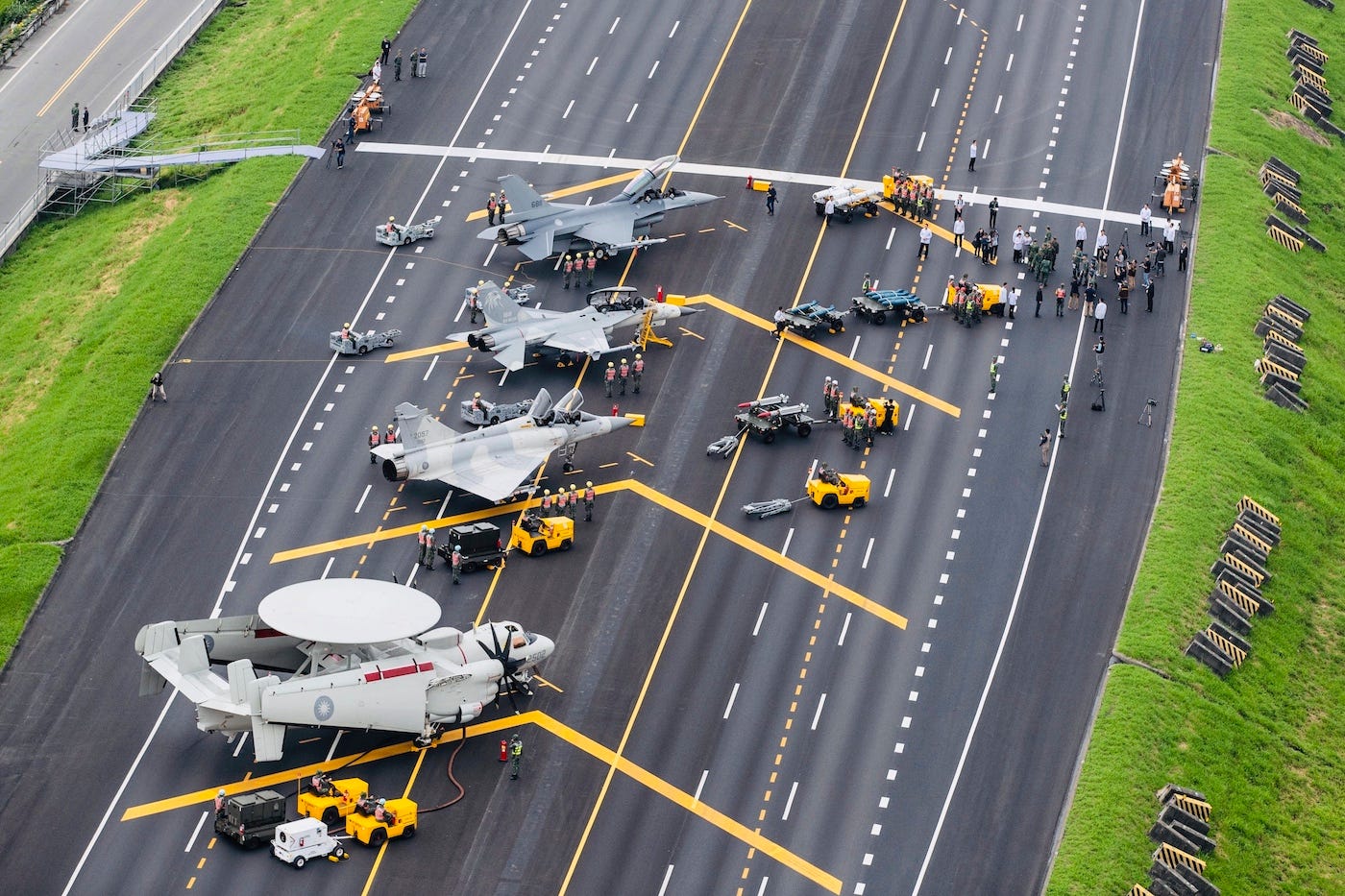
Military News Agency via AP
Philippine President Rodrigo Duterte has made overtures to China since taking office in 2016 - that year, he declared his country's "separation" from the US, saying he had "realigned" with Beijing - and continues to have a standoffish relationship with the US.
Despite taking a tougher tone with China in recent weeks over its maritime violations, Duterte is still seen as reluctant to confront Beijing.
Australia's government is reportedly considering whether and how it could aid Taiwan in such a conflict, but Canberra has made no official declaration, and its distance from Taiwan would prevent a quick response.
Apart from the US, "you're probably talking about Japan by far being the most active potential participant," Zack Cooper, a research fellow at the American Enterprise Institute, told Insider.
The Japan Self-Defense Force is quite capable and is reorganizing itself to better handle the Chinese threat. Japan also hosts about 55,000 US troops, the largest forward-deployed US force in the world, and has its own territorial disputes with China.
Japan certainly has a lot at stake if Taiwan fell to China.
Chinese military documents say that with Taiwan under Chinese control, "Japan's maritime lines of communication will fall completely within the striking ranges of China's fighters and bombers."
The documents note that 500 million tons of Japanese imports pass through Taiwanese waters, including 90% of its oil and 99% of its mineral resources. If blockades could reduce those imports by just 30%, the documents add, "Japan's economic and war-making potential will be basically destroyed."
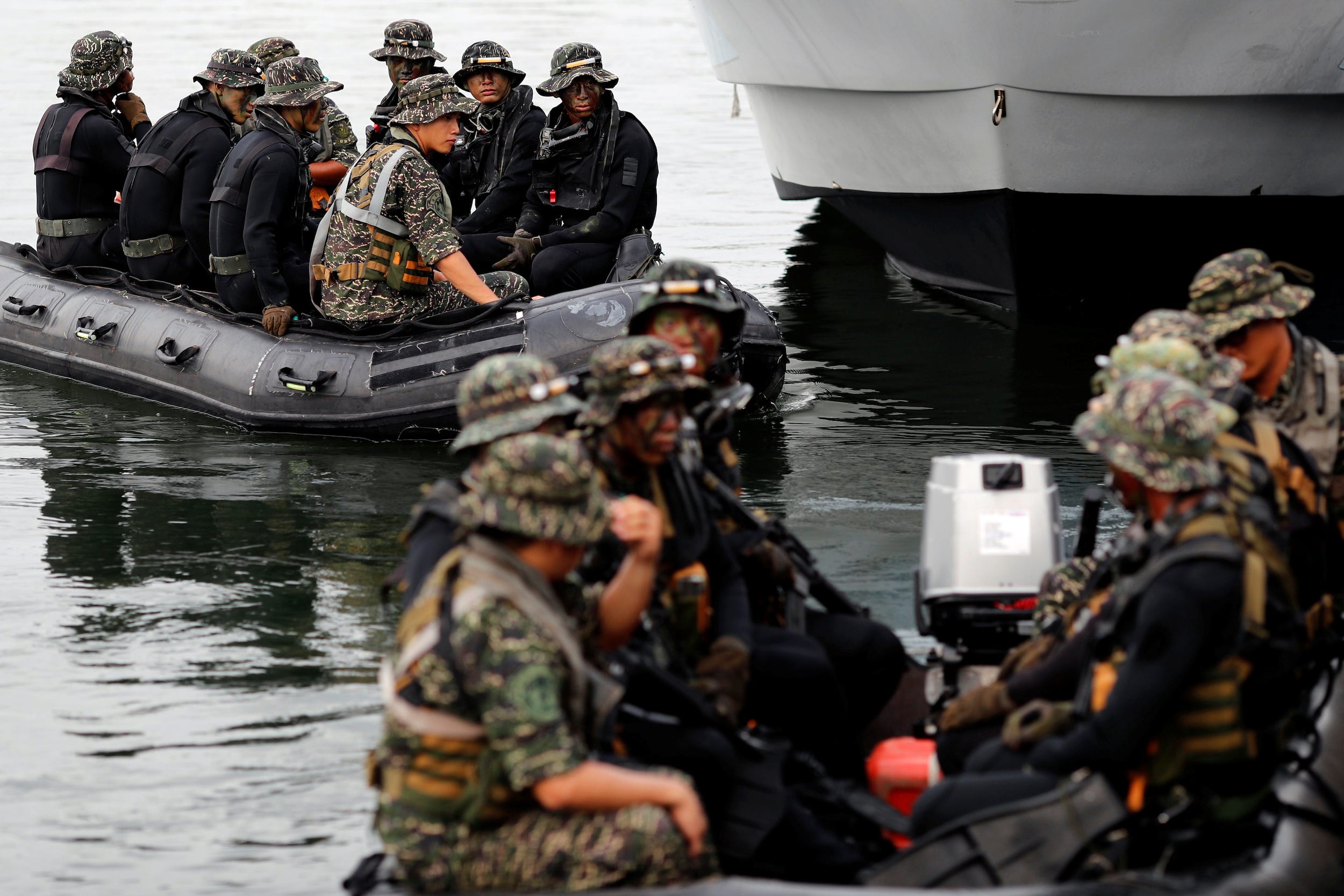
REUTERS/Tyrone Siu
Japan has recently been more vocal about Taiwan, but Tokyo has made no official statements about how it would respond to an invasion. Japan has a pacifist constitution, and Prime Minister Yoshihide Suga has said his recent expression of support in a joint statement with President Joe Biden "does not presuppose military involvement at all."
Japan is expected to play some role - in part because US bases in Japan are expected to play a role - but, according to Cooper, "the spectrum of activities is going to depend a huge amount" on the scenario.
"The range of actions are potentially very wide," Cooper said.
A major factor is whether the PLA attacks bases in Japan. "I think in that case you'd see very close cooperation between the US and Japan to respond militarily and perhaps even to try and support Taiwan," Cooper said.
But it's not clear that Japan and the US have a plan for such a scenario or have even discussed one.
"That I think is in fact why the [US-Japan] alliance has to talk about this now," Cooper said. "We can't just assume that we know what either Washington or Tokyo would do in a crisis."
Strategic ambiguity
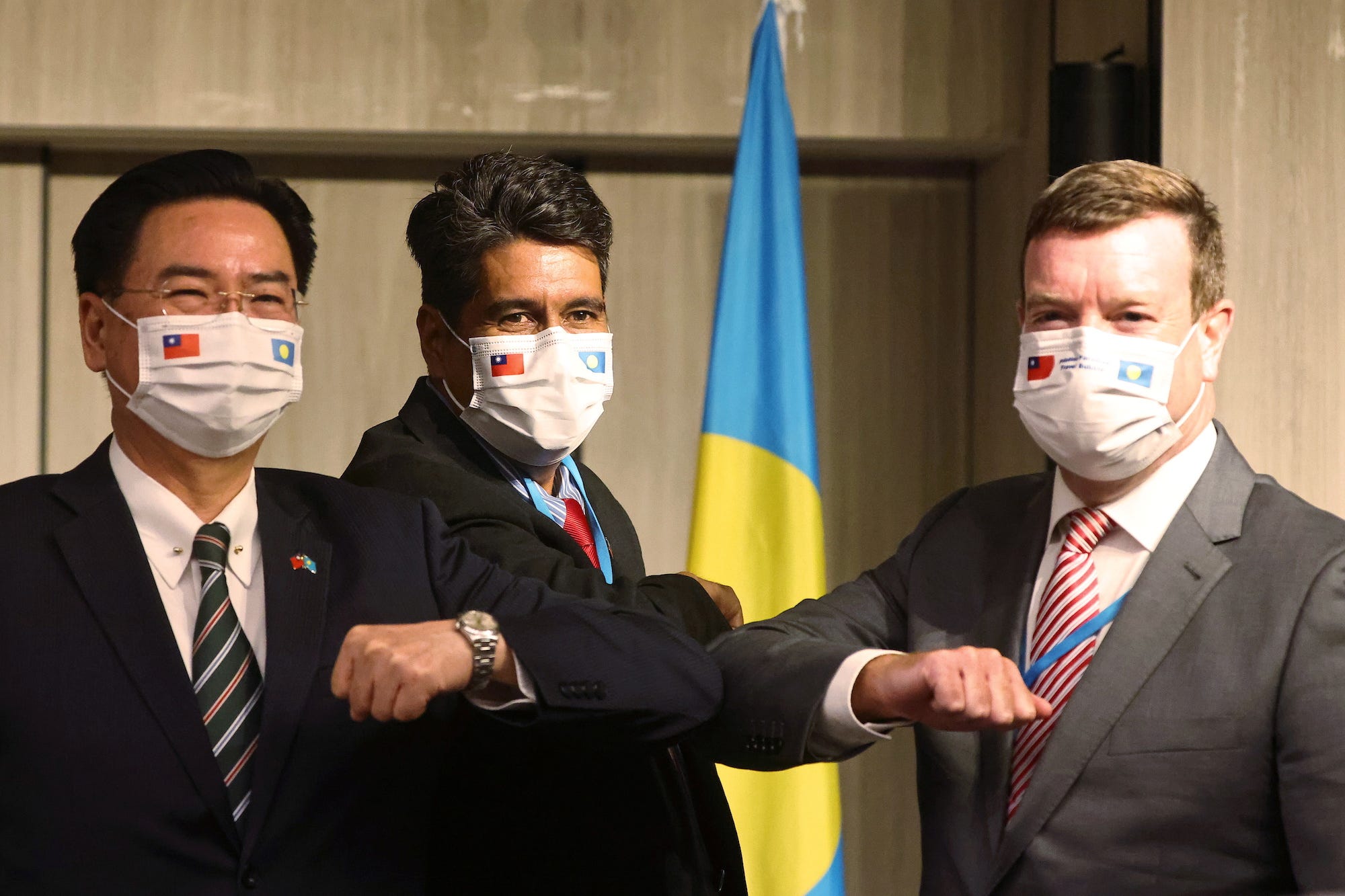
REUTERS/Ann Wang
Taipei has its own doubts about Washington, as the US has also never officially committed to coming to Taiwan's aid if it was invaded.
While the US has sold high-end weaponry to Taiwan and the Biden administration has been vocal about its support, the US maintains a policy of strategic ambiguity about defending Taiwan. That ambiguity has maintained the status quo, but it limits preparations to respond to an invasion.
While the US and Taiwanese militaries do conduct small-scale trainings and exchanges, there have been no large-scale joint exercises or permanent deployments since the US pulled out of its mutual defense treaty with Taiwan in 1979.
The US does have military attachés in Taiwan, but the Pentagon doesn't send its highest-ranking officials there.
"They send very small groups of people to Taiwan," said Ian Easton, senior director at the Project 2049 Institute. "They don't stay there for very long. They don't learn the language. They don't develop a deep relationship with their counterparts."
This means that the US and Taiwanese militaries would struggle to coordinate in a conflict. It also means that top US military leaders will not have a full understanding of the battlespace.
"They're going to have to give military advice on a situation they're going to not understand very well because they've never even been to the country that they're talking about," said Easton, author of "The Chinese Invasion Threat: Taiwan's Defense and American Strategy in Asia."
A need to prepare
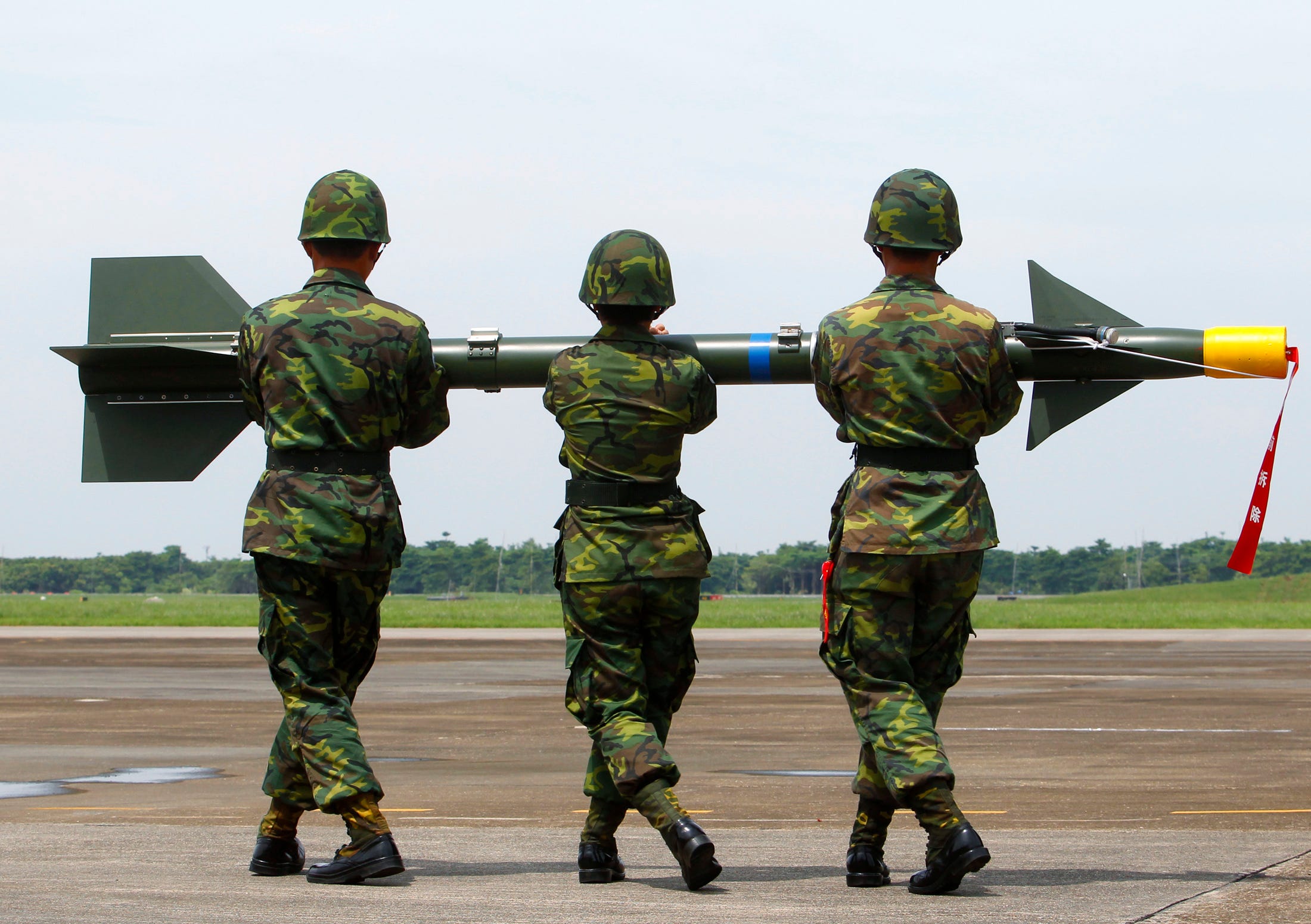
REUTERS/Nicky Loh
The US's focus on high-end weapon sales and statements of support may not be enough as the PLA grows stronger.
"We've been putting all of our eggs in the arms sales basket, and that's just not good enough," Easton said. "We wouldn't do that with any other ally. We would not do that with any other democracy ... that faces the threat of invasion and occupation from an authoritarian neighbor."
US officials have said that clarifying the US's ambiguity could led Beijing to feel it has to act.
"If we were to see a US shift from strategic ambiguity ... to clarity over willingness to intervene in a Taiwan contingency, the Chinese would find this deeply destabilizing," Avril Haines, the director of national intelligence, told the Senate in late April.
"I think it would solidify Chinese perceptions that the US is bent on constraining China's rise, including through military force, and would probably cause Beijing to aggressively undermine US interests worldwide," Haines said.
Critics of strategic ambiguity argue the best way to deter an invasion or ensure Taiwan survives one is to make it clear to China that such an action would be too costly. That would require countries in the best positions to help to make concrete plans for everything from basing rights and logistical support to direct military action, which many have avoided doing.
"We need to raise the saliency of this threat that we all face, because it's a common threat," Easton said. "We need to be ready to defend Taiwan, and we need our allies to be ready to support us as we do that."